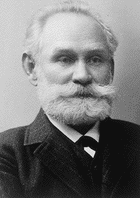Published 19th January 2009
People with learning disabilities will be supported in every aspect of their lives, from housing and health to employment, Secretary of State for Health, Alan Johnson announced today.
'Valuing People Now - A Three Year Strategy for People with Learning Disabilities' presents a new vision for improving services for people with learning disabilities across health, housing, employment and community care services. It follows a comprehensive consultation involving more than 10,000 people.
Improving training, commissioning of services and strengthening local structures to meet the needs of people with learning disabilities, are fundamental elements of the Strategy.
Key aims include:
* ensuring people with learning disabilities get the healthcare they need and the support they want to live healthy lives;
* supporting more people with learning disabilities, including those with more complex needs, into paid work;
* ensuring people with learning disabilities have the choice to have relationships, become parents and continue to be parents; and
* giving people with learning disabilities opportunities to study and enjoy leisure and social activities.
Progress will be reviewed annually. A new national Learning Disability Programme Board and Regional Boards will ensure the strategy works, share good practice and provide a forum for stakeholder groups to discuss progress and concerns.
To download Valuing People Now click here







.png)










